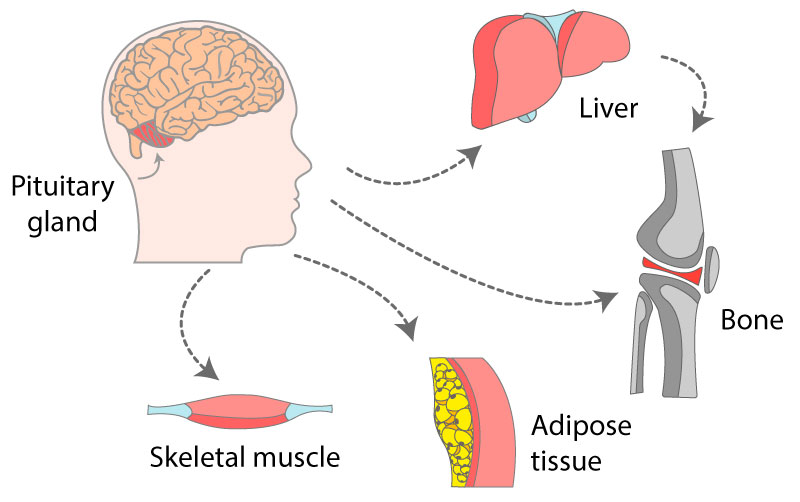Human Growth Hormone (HGH) Treatment in Czech Republic
Find the best clinics for Human Growth Hormone (HGH) Treatment in Czech Republic
No pricing info available
Thailand offers the best prices Worldwide
Price: $ 208
Medtempl, located in Bucharova, Prague, Czech Republic offers patients Human Growth Hormone (HGH) Treatment procedures among its total of 84 available procedures, across 2 different specialties. Currently, there's no pricing information for Human Growth Hormone (HGH) Treatment procedures at Medtempl, as all prices are available on request only. All procedures and treatments are undertaken by the lead specialist at the Hospital, and they are not accredited by any recognized accreditations institutes
Malvazinky Rehabilitation Center, located in Bucharova, Prague, Czech Republic offers patients Human Growth Hormone (HGH) Treatment procedures among its total of 44 available procedures, across 8 different specialties. Currently, there's no pricing information for Human Growth Hormone (HGH) Treatment procedures at Malvazinky Rehabilitation Center, as all prices are available on request only. There is currently a lack of information available on the specialists practicing at the Clinic, and they are not accredited by any recognized accreditations institutes
WHY US?
At Medijump, we're making medical easy. You can search, compare, discuss, and book your medical all in one place. We open the door to the best medical providers worldwide, saving you time and energy along the way, and it's all for FREE, no hidden fees, and no price markups guaranteed. So what are you waiting for?

Free

Best Price

Widest Selection

Risk-Free
What you need to know about Human Growth Hormone (HGH) Treatment in Czech Republic

Human growth hormone (HGH) is a naturally occurring hormone that is produced by the pituitary gland and secreted into the bloodstream. It is important for cell regeneration, cell reproduction, and growth. This hormone can help build, maintain, and repair healthy tissue in the brain and other organs. It can help repair muscle tissue after exercise and speed up healing after an injury. Also, it has some benefits to the appearance and quality of the skin.
Although HGH is a substance that occurs naturally, it is also available in synthetic forms as a treatment. Synthetic HGH is approved by the FDA for specific uses in children and adults. In children, HGH treatments are approved to treat short stature disorders and poor growth caused by some medical problems, including:
-
HGH insufficiency or deficiency
-
Chronic kidney disease
-
Prader-Willi syndrome
-
Children born small for gestational age.
In adults, there are several approved uses of HGH. These include:
-
HGH deficiency caused by rare pituitary tumors or their treatment
-
Short bowel syndrome
-
Muscle loss is associated with HIV/AIDS.
HGH can also help adults with a growth hormone deficiency to improve bone density, increase exercise capacity, build muscle mass, and reduce body fat. Due to these benefits, some people use HGH treatment to enhance their athletic ability. Many people also believe that this treatment has anti-ageing effects. Note that using HGH treatment to improve athletic performance and anti-ageing has not been scientifically proven and is not FDA-approved.
What does a Human Growth Hormone (HGH) Treatment Procedure Involve?
In human growth hormone (HGH) treatments, your doctor will give the lab-developed HGH in the form of injections. The treatments can be self-administered or given by a doctor. Doses usually occur several times a week or daily. Your doctor will check your specific condition to determine the correct doses for you. Doctors usually base HGH treatment on several factors, including:
-
General health and medical history
-
Age
-
The extent of the condition, such as the severity of the deficiency
-
Goals of treatments
-
Tolerance for specific treatment
-
Preference and choice.
Once your doctor determines the correct doses for you, they will prescribe the lab-developed HGH for you to administer the injections yourself or they will administer the HGH during the appointment. Your doctor may inject the HGH intramuscularly (IM) or subcutaneously (under the skin). The HGH may be injected into the thigh or abdomen.
If you choose to administer the HGH yourself or administer it for your child, your doctor will teach you the correct and safe way to do it. Your doctor will also tell you how to store the injections and the best time to administer the injections. The recommended injection sites include the back of arms, sides of the belly, top or outside of thighs, and outer quadrant of buttocks.
How Long Should I Stay in Czech Republic for a Human Growth Hormone (HGH) Treatment Procedure?
You can leave the hospital or clinic right away after your HGH treatment. You may be able to leave Czech Republic the same day or the next day after the procedure. However, if your doctor scheduled a follow-up checkup in a week or so to check your condition, you may need to stay in the country longer.
What's the Recovery Time for Human Growth Hormone (HGH) Treatment Procedures in Czech Republic?
Normally, no recovery time is needed after HGH treatment. You may be allowed to return to your normal activity, including work and exercise, immediately after the procedure. Your doctor should give you a detailed timeline for your recovery.
What sort of Aftercare is Required for Human Growth Hormone (HGH) Treatment Procedures in Czech Republic?
There is usually no special aftercare needed after HGH treatment, but make sure to attend follow-up checkups every month to check your condition. In some cases, you can choose to schedule these checkups with your local doctor instead of your doctor in Czech Republic if you cannot travel back and forth. During the checkups, your doctor will carry out blood tests to see if treatments should be decreased, increased, or stopped. Blood sugar levels, cholesterol levels, and bone density will also be checked to see if they are healthy.
What's the Success Rate of Human Growth Hormone (HGH) Treatment Procedures in Czech Republic?
FDA-approved uses for HGH treatment are found to be safe, effective, and highly successful. For children with poor growth, the treatment may help them grow 1 to 2 inches within the first 6 months and about 4 inches or more over the first 3 years. Another 3 inches or more can be gained during the next 2 years.
While FDA-approved uses for HGH treatment are safe, there are some risks you need to be aware of, including:
-
Muscle, joint, or nerve pain
-
High cholesterol levels
-
Carpal tunnel syndrome
-
Type 2 diabetes
-
Swelling in the legs and arms (edema)
-
Increased risk of certain cancer
-
Increased insulin resistance.
Make sure that you get HGH treatment from a board-certified and experienced doctor.
Are there Alternatives to Human Growth Hormone (HGH) Treatment Procedures in Czech Republic?
The alternative to HGH treatment depends on your specific condition. For instance, if you need a procedure to treat short bowel syndrome, you can consider medications or surgery (such as small bowel transplantation) as the alternatives. If you want to undergo HGH treatment for reasons that are not FDA-approved, for example, to get the anti-ageing effects, you can consider other cosmetic treatments that have been scientifically proven to do so, such as Botox injections.
What Should You Expect Before and After the Procedure
Before HGH treatment, you may have short bowel syndrome or HGH deficiency, or your child may experience poor growth. After the procedure, these problems should be treated, or at least managed. Body development will be enhanced and energy should be restored. Overall, successful HGH treatment should increase your quality of life.
Whilst the information presented here has been accurately sourced and verified by a medical professional for its accuracy, it is still advised to consult with your doctor before pursuing a medical treatment at one of the listed medical providers
No Time?
Tell us what you're looking for and we'll reachout to the top clinics all at once
Enquire Now

Popular Procedures in Czech Republic
Prices Start From $218

Prices Start From $100

Prices Start From $3

Prices Start From $10

Recommended Medical Centers in Czech Republic for Human Growth Hormone (HGH) Treatment

- Interpreter services
- Translation service
- Religious facilities
- Medical records transfer
- Medical travel insurance
- Health insurance coordination
- TV in the room
- Safe in the room
- Phone in the room
- Private rooms for patients available

- Interpreter services
- Translation service
- Religious facilities
- Medical records transfer
- Medical travel insurance
- Health insurance coordination
- TV in the room
- Safe in the room
- Phone in the room
- Private rooms for patients available

- Interpreter services
- Translation service
- Religious facilities
- Medical records transfer
- Medical travel insurance
- Health insurance coordination
- TV in the room
- Safe in the room
- Phone in the room
- Private rooms for patients available

- Interpreter services
- Translation service
- Religious facilities
- Medical records transfer
- Medical travel insurance
- Health insurance coordination
- TV in the room
- Safe in the room
- Phone in the room
- Private rooms for patients available

- Interpreter services
- Translation service
- Religious facilities
- Medical records transfer
- Medical travel insurance
- Health insurance coordination
- TV in the room
- Safe in the room
- Phone in the room
- Private rooms for patients available

- Interpreter services
- Translation service
- Religious facilities
- Medical records transfer
- Medical travel insurance
- Health insurance coordination
- TV in the room
- Safe in the room
- Phone in the room
- Private rooms for patients available

- Interpreter services
- Translation service
- Religious facilities
- Medical records transfer
- Medical travel insurance
- Health insurance coordination
- TV in the room
- Safe in the room
- Phone in the room
- Private rooms for patients available


